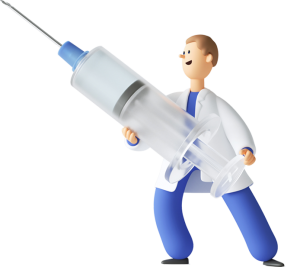OPENING HOURS

SpringHill Clinic
Contact : +03-7731 5128
E-mail : springhillclinicttdi@gmail.com
Address : No.116, Jalan Burhanuddin Helmi,
Taman Tun Dr Ismail,
60000 Kuala Lumpur

Breast Health Screening
Regular breast health screening plays a vital role in early detection and prevention of breast cancer, especially for women in Malaysia where it remains the most common cancer among women. Through routine self-examinations, clinical breast exams, mammograms, and ultrasound screenings in Kuala Lumpur, women can identify abnormalities early and access timely medical care. SpringHill Clinic offers comprehensive breast health services, including genetic mutation testing and ultrasound for dense breast tissue, ensuring that each woman receives personalised, proactive, and compassionate care for long-term wellbeing.
- Introduction to Breast Health Screening
- Importance of Breast Health Awareness
- When to Schedule a Breast Health Screening
- Breast Ultrasound KL
- What Is a Breast Ultrasound
- Who Should Get a Breast Ultrasound
- Benefits of Ultrasound for Dense Breast Tissue
- Breast Health FAQ
- What to Expect During a Breast Ultrasound
- Is the Screening Painful?
- Breast Ultrasound vs. Mammography
- Preparing for a Breast Ultrasound Screening
Importance of Breast Health Screening in Malaysia
Maintaining breast health begins by being aware of what is normal for your breasts. Regular self-examinations can help you develop a heightened breast health awareness and detect any concerning changes or abnormalities. This is a crucial aspect of breast health, empowering women to take proactive steps in managing their health by knowing when to go for a breast health screening.
At SpringHill Clinic, we provide services for gynecology in Kuala Lumpur including breast examination, breast ultrasound, and genetic mutation screening for the development of breast cancer. The team at our women’s clinic emphasizes that early detection through breast health screening significantly improves treatment outcomes and long-term survival.
When to Schedule a Breast Health Screening
The ideal time to begin breast health screening depends on age, risk factors, and family medical history. Generally, women in their 20s and 30s are advised to perform monthly self-examinations and schedule a clinical breast exam every one to three years. From the age of 40 onward, annual screenings—such as breast ultrasound in KL or mammograms—are recommended for early detection of abnormalities.
For women with a family history of breast cancer or known genetic predispositions (such as BRCA mutations), screening should begin earlier, typically around the age of 25. Even if you feel healthy and have no symptoms, preventive screening can help identify issues before they become serious.
SpringHill Clinic offers flexible screening appointments through its body check up package, which can include a combination of breast ultrasound, mammogram referrals, and other essential women’s health tests.
Get A Breast Ultrasound in KL
Breast ultrasound is a valuable tool for evaluating certain breast changes, particularly those that can be felt but not seen on a mammogram or changes in women with dense breast tissue. It can also help further investigate findings observed on a mammogram. Ultrasound aids in distinguishing between fluid-filled cysts and solid masses, playing a key role in maintaining breast health and awareness.
Reference:
- Breast Cancer Foundation Malaysia. (2024). Understanding breast health and early detection in Malaysia. Retrieved from https://www.breastcancerfoundation.org.my/
- Ministry of Health Malaysia. (2023). Clinical practice guidelines: Management of breast cancer (4th ed.). Putrajaya: Medical Development Division. Retrieved from https://www.moh.gov.my/
- American College of Radiology. (2023). ACR Appropriateness Criteria® Breast Cancer Screening. Journal of the American College of Radiology, 20(5), S1–S15. https://doi.org/10.1016/j.jacr.2023.01.010
- World Health Organization. (2023). Breast cancer: Early diagnosis and screening. Geneva: WHO. Retrieved from https://www.who.int/news-room/fact-sheets/detail/breast-cancer
- National Cancer Institute. (2022). Breast cancer screening (PDQ®)–Patient version. Bethesda, MD: U.S. Department of Health and Human Services. Retrieved from https://www.cancer.gov/types/breast/patient/breast-screening-pdq
Breast Health FAQ
What can I expect during a breast ultrasound?
During the procedure, you’ll lie on your back or side. A small handheld device called a transducer will be moved over your breast with a special gel to create images on a screen. The procedure is painless and usually takes about 20-30 minutes.
Does a breast ultrasound screening hurt?
No, a breast ultrasound screening is painless. You may experience some discomfort from the pressure of the transducer, especially if the area being examined is sensitive, but there should be no pain.
Is breast ultrasound screening a substitute for mammography?
No, breast ultrasound is not a substitute for mammography but is often used as a complementary tool. While mammograms are more effective at screening for breast cancer, ultrasounds can provide more information about specific areas of concern, especially in dense breast tissue.
How should I prepare for a breast ultrasound screening?
Preparation is minimal. It’s recommended to wear a two-piece outfit as you will need to undress from the waist up for the exam. Avoid using deodorant, powder, or lotion on your breasts on the day of the exam, as these can affect the images.
